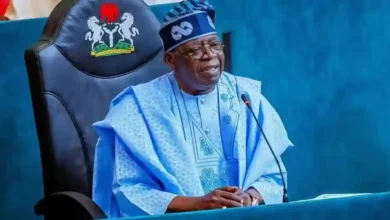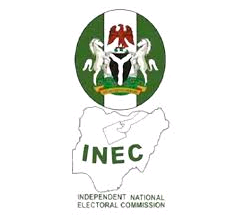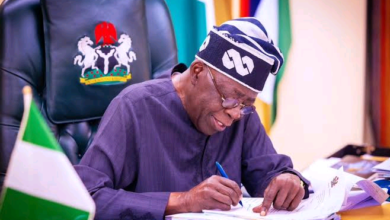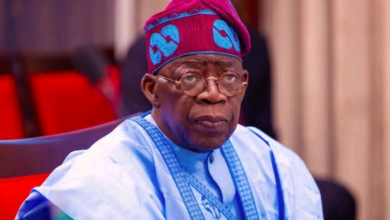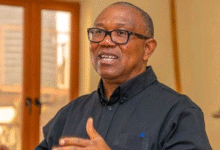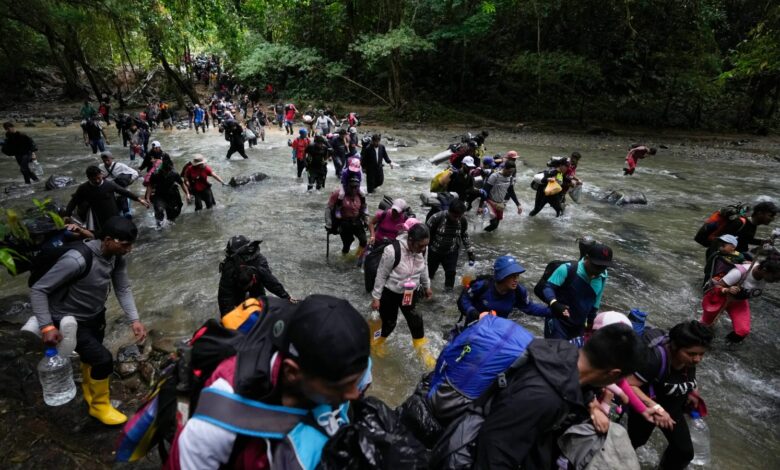
Colombian foreign minister Luis Gilberto Murillo says his country would not agree with the closure of the border crossing in the Darién jungle on the border with Panama.
Panama’s president-elect, José Raúl Mulino had during his election campaigns proposed to close the Darién jungle border.
The “closing” of the dangerous route that links both countries was one of the main campaign promises of Mulino, elected on May 5 as the new president of Panama.
But Murillo, in an interview in Bogotá on Saturday, said he believed in a more humanitarian exit plan for migrants passing through the route heading to the United States of America.
“It is a conversation that must continue, but Colombia obviously would not agree with closing borders and less obviously the Darién border because we see that, on the contrary, what we have to offer is more humanitarian exits for this population that crosses through that zone”, he said.
Murillo added that the government of President Gustavo Petro seeks to arrange a meeting with Mulino before his inauguration, on July 1, to discuss different issues “with migratory flows as the central axis.”
“People are going to move and what we have to guarantee is that this mobility is safe, that it is regular mobility and that people do not fall into the hands” of criminals who take advantage of them during the walk.
In 2023, at least 520,000 people, several of them children, crossed the Darien, risking the multiple dangers of the jungle such as wild animals, raging rivers and gangs that assault, rape and kill.
On May 16, after Mulino’s election, his future Minister of Security, Frank Ábrego, assured that the new government does not plan to build a wall on the border, but will deport walkers who cross into his country.
The Colombian government had not communicated an official position regarding these statements. Murillo added that he trusts that Mulino’s promises “were given in the heat of the” electoral campaign.
“We believe and are almost certain that a situation of this nature would not arise because we have agreements within the framework of the Los Angeles declaration” on migration “that do not lead to that,” he added.
The majority of the migrants are Venezuelans, in addition to Haitians, Ecuadorians and Colombians who are destined for the United States. There are also Asians, mainly Chinese, and Africans.
Murillo took office as Colombia’s Foreign Minister last week, following the disqualification of his predecessor, Álvaro Leyva. For a few weeks, he had been serving as foreign minister in charge at the same time as ambassador to the United States, a position that he will no longer hold.
Petro commissioned Murillo to design a strategy to get Haiti out of the serious political and security crisis in which it is immersed after the resignation of Prime Minister Ariel Henry in March, the chancellor said for the first time this Saturday.
“President Petro has given us instructions” to “be able to design a plan that allows several things”:
First, “we have offered a mechanism” so that “we can train (in Colombia) members of the Haitian police” in the fight against gangs.
In addition, “we would like to quickly enter to provide humanitarian aid,” he said.
According to Murillo, the president of Brazil, Luz Inácio Lula da Silva, is an ally of Colombia in this initiative and Petro will try to convince other member countries of the Community of Latin American and Caribbean States (CELAC) to join.
With the aim of playing a leading role in favor of “peoples that have been under oppression”, Colombia became one of the main allies of the Palestinians in the world after the start of the war between the Islamist group Hamas and Israel. in October 2023.
Petro strongly condemns the actions of the Israeli army in the Gaza Strip and broke off relations with Israel, making Colombia the largest country to make that decision, besides Belize and Bolivia.
Recently the Colombian government confirmed that it will open an embassy in the Palestinian city of Ramallah, in the West Bank, a task for which “there is already a team working,” according to Murillo.
“Colombia is showing the way,” concluded the new head of Colombian diplomacy.


